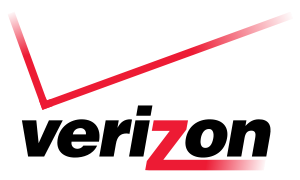

EUROPE, and by extension the rest of the world, typically follows the trajectory of the US lawmaking when it comes to law. US corporations, backed by NSA espionage which they secretly love, spread their legislation to countries such as Australia, New Zealand, Canada and the UK, and then to the rest of Europe, Asia, and even Africa (which depends on all those).
On 24 February, the “Industry” (ITRE) committee of the European Parliament will take a crucial decision for the future of Net Neutrality in Europe, by adopting its report, on the basis of which the whole Parliament will vote. As things currently stand, Members of the European Parliament in ITRE still have the possibility to ensure a genuine and unconditional Net Neutrality principle, as proposed by others committees, so as to protect freedom of expression and online innovation. But instead, all might be lost because the liberal (ALDE) and socio-democrat (S&D) political groups seem ready to adopt the disastrous proposals made by Pilar Del Castillo Vera, the lead rapporteur in charge of this dossier. Unless citizens act and key MEPs show political leadership, we may be about to lose the Internet as we know it.
Today, the “Civil Liberties” (LIBE) committee of the European Parliament adopted its opinion report on the European single market for electronic communications. Key amendments were adopted which, if included in the final text, would guarantee that network neutrality becomes an enforceable rule across all of the European Union. La Quadrature du Net warns against attempts in the Industry committee (ITRE), the lead committee on this dossier, to adopt watered-down amendments that would allow telecommunication operators to distribute specialised services in a way that would radically undermine freedom of communication and innovation on the Internet.
For more than a decade there has been active resistance in some quarters to the continuing custody by the U.S. of the root domain registries of the Internet. Those directories (which control the routing of Internet traffic into and out of nations) are administered by ICANN, which in turn exists under the authority of the U.S. Department of Commerce. Today, Neelie Kroes, the strong-willed European Commission Vice-President in charge of the E.C.’s Digital Agenda, has put the question of “Internet Governance” (read: control of these registries) back into the news. Specifically, Kroes announced in a press release that the Commission will pursue a “role as honest broker in future global negotiations on Internet Governance.”
FCC Chairman Tom Wheeler will soon release his plan for how to proceed on net neutrality.
Wheeler did not provide specifics on how the commission will proceed, instead making the case for why the FCC has the right to step in on this issue.
Politicos get behind Net neutrality with the Open Internet Preservation Act of 2014, but the real power lies with us
Comcast has confirmed reports that the company will be acquiring Time Warner Cable in a deal estimated to be worth around $45 billion. With the ink on their NBC acquisition only just dry to the touch, the deal will tack 8 million broadband subscribers onto the company's existing 22 million broadband customers. Comcast is already the nation's largest fixed-line broadband company, largest cable TV provider, and third largest fixed-line phone company -- and that's before you include the company's NBC or other assets. From a geographical perspective the deal makes sense; Time Warner Cable filling in Comcast's coverage gaps and in particular giving Comcast the prized markets of Los Angeles and New York City, where Time Warner Cable has traditionally under-performed.
Netflix's speed rankings show that video streaming performance on Verizon and Comcast has been dropping for the past three to four months.